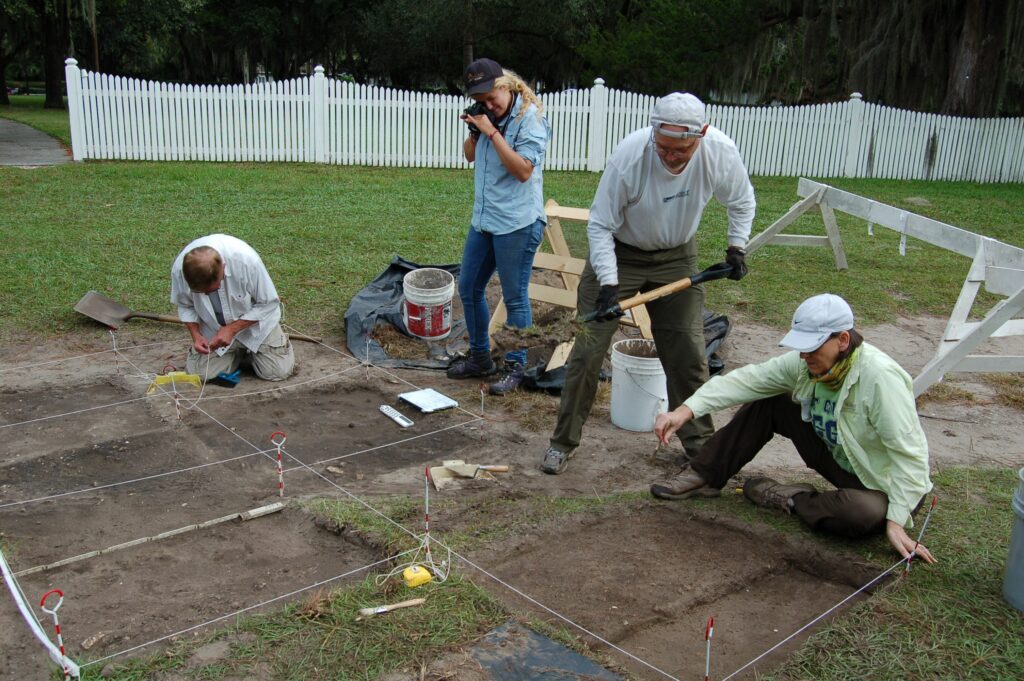
Are you passionate about archaeology? If so, you’ll be interested to know that since 2012, the Coastal Georgia Historical Society has operated an archaeology laboratory at the Historic Coast Guard Station at East Beach.
The lab was established by the late Dr. M. Ray Crook, Professor Emeritus of Anthropology at the University of West Georgia and well-known authority on coastal archaeology. His vision for the lab was to advance the study of coastal archaeology and to preserve local collections in a local repository. We honor Dr. Crook’s vision by curating collections that reflect the cultural heritage of the surrounding region. These include materials from approved archaeological projects as well as donated collections, which together help us preserve and share a more complete story of the past.
Currently, the lab curates over 50 collections, encompassing tens of thousands of artifacts. Most of our collections originate from Cannon’s Point, a 644-acre preserve managed by the St. Simons Land Trust. Collections curated at the lab have been highlighted in professional publications, academic papers, master’s theses, and conferences. Alongside supporting university field schools, the lab has hosted internships and provided a workspace for graduate students in anthropology.
At the heart of our laboratory’s operation is a commitment to advancing archaeological practice and heritage stewardship across our region. We conduct Phase I and II investigations in compliance with state and federal guidelines, providing essential documentation and site evaluation for cultural resource management.
Our lab also specializes in artifact conservation, with a particular focus on stabilizing and preserving iron materials recovered from diverse archaeological contexts.
With ongoing development and more frequent severe weather along our coast, we remain dedicated to protecting archaeological resources and the stories they tell. Through advocacy, public outreach, and expert consultation, we strive to deepen public understanding of the significance these resources hold for our shared history, while working with agencies and stakeholders to identify, evaluate, and preserve significant cultural heritage across the region.
